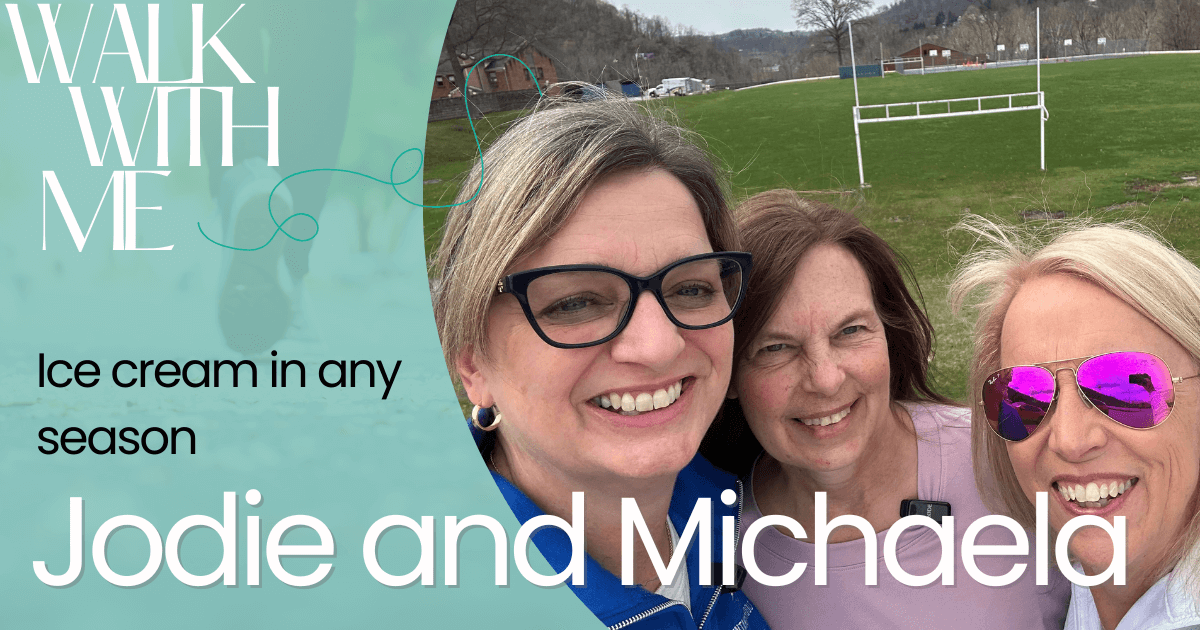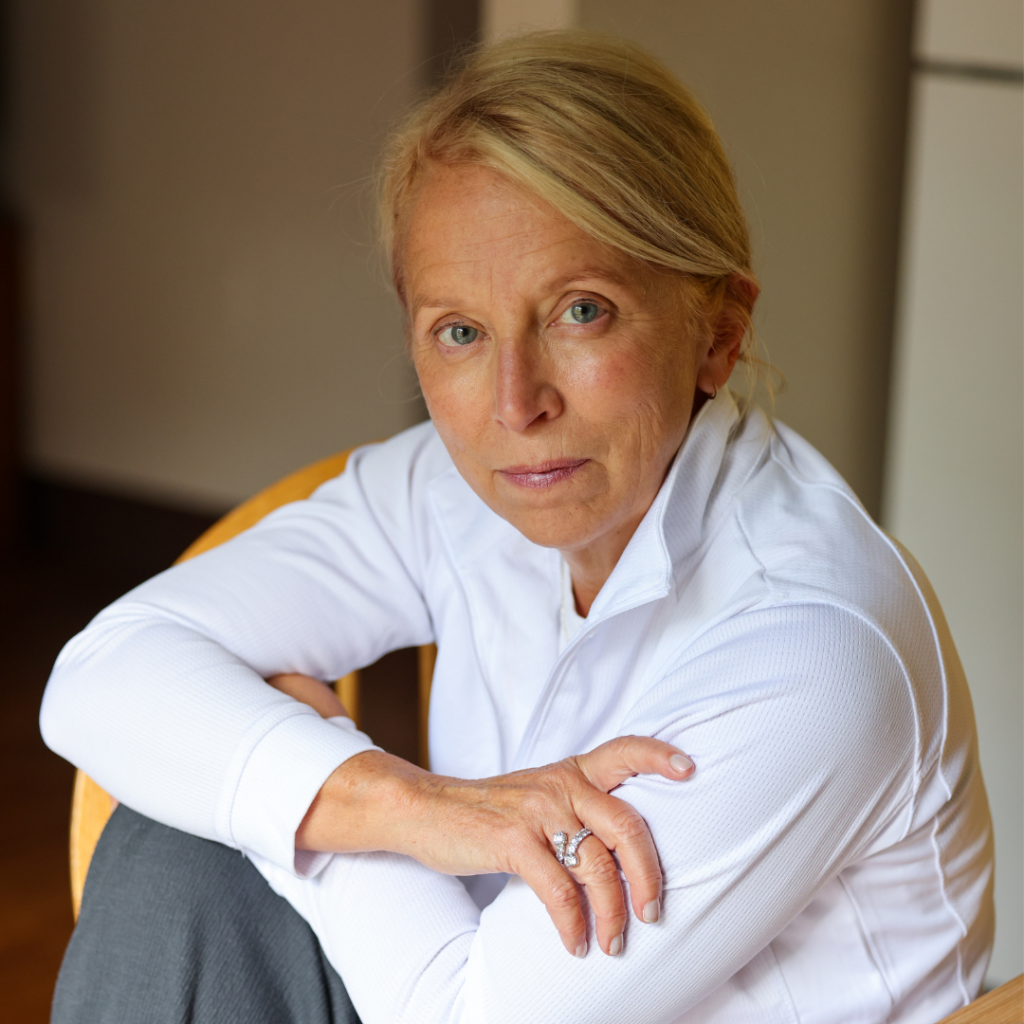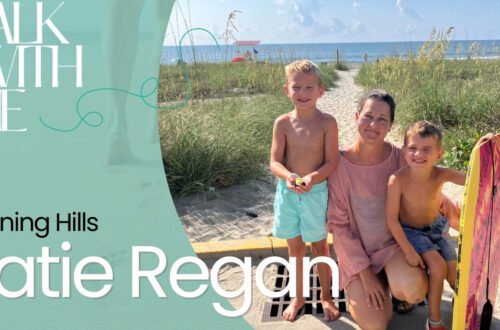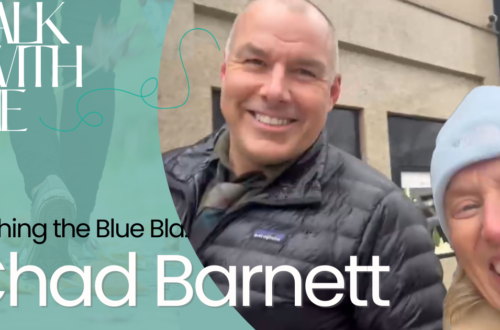There are seasons to this adult life that arrive with the predictability of weather patterns—each decade bringing its own particular storm system. There’s the decade when your weekends disappear into a blur of white tulle and champagne toasts, when every Saturday means squeezing into another bridesmaid dress or clutching a bridal shower gift all chased by baby showers where you marvel at how much stuff one tiny human apparently needs.
Naturally the decade of sports, dance and science fairs follows close on its heels when your social circle revolves around bleacher conversations, playdate planning, and last-minute carpools. Adult friendships are forged and sometimes lost on the sidelines.
I find myself in what I’m calling the “How are your parents?” decade. Every conversation finds its way to that loaded question, followed by discussions about assisted living choices, medication schedules, and the peculiar art of finding caregivers while we ask ourselves shouldn’t we be taking care of the people who took care of us?
In that first decade I found myself thinking “When is it my turn?” In the next, “Will my turn at this ever end?” and then “Oh no, it’s my turn.” There is something about the fact that we all go through it that makes us minimize or downplay our emotions.
While I expected this particular benchmark to stretch ahead of me like a marathon, my turn ended up being more like an unexpected sprint—barely a year of racing home from work to get someone to a doctor’s appointment or befriending the pharmacist for medication packets before I lost both parents and my step-mother in what felt like a macabre game of musical chairs, or should I say, hospice beds. It was just my turn.
I had some naive notion I could write a blog that could help other people be better prepared when their turns come. I have realized that is not possible. There is no advice, no wisdom, no checklist that works universally. Turns out, that’s like trying to write instructions for falling in love in that first season. Some experiences resist being tidied up into helpful bullet points.
On a walk with two life-long friends who have both lost their mothers, Jodie and Michaela, I found the comfort of leaning into the emotions specifically with two friends who knew my parents well. We have college roommates, sport-induced adult friendships, and even work friends who all support us, but there is a warm hug in the friendships that formed when our mothers and fathers were integral in our daily lives. Jodie and Mich were loved by, provided for and scolded by my parents almost as much as I was.
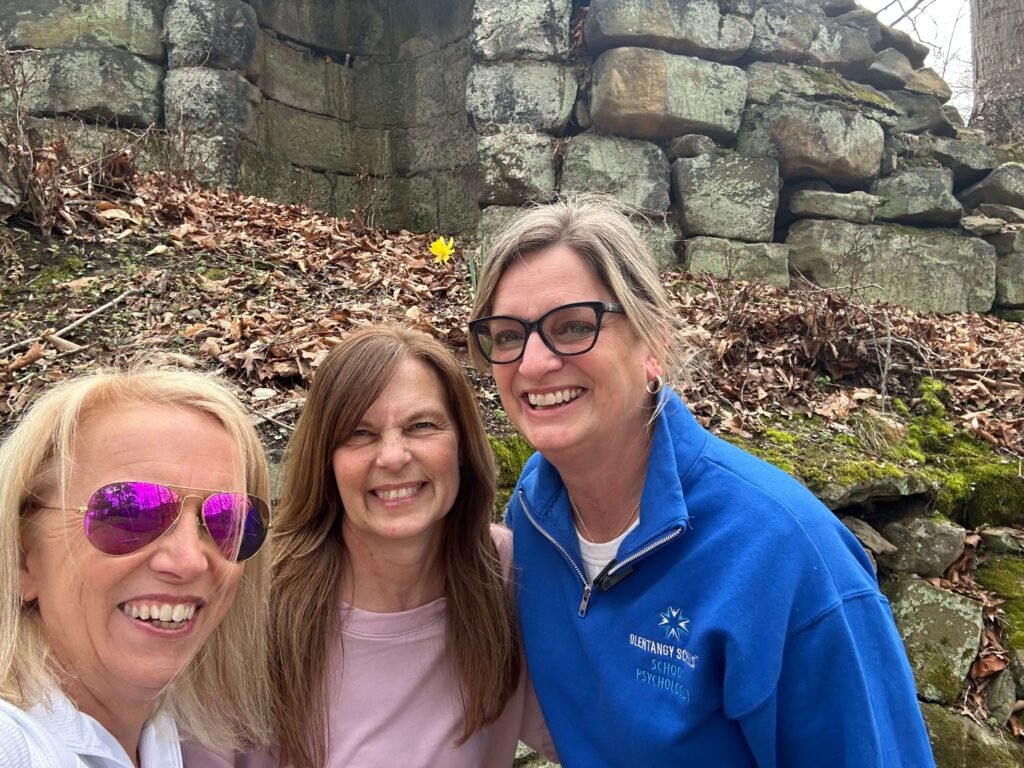
It feels rich to share our stories with people who knew our mothers almost as long as we did.
Liz: I don’t think I understood what it was like to lose a parent until I lost a parent. You made the comment that when Gigi’s dad died, you had this feeling of…”that can’t happen to me.”
Jodie: Not in the way like, it can’t happen to me. Like, it’s not going to happen to me. But that cannot happen to me. I would not be able to live through it.
Mich: Yeah, I know. Dan lost his parents in December and March. Even though I’d been in the family for 25 years, they weren’t my parents. And I don’t… It sounds crass, but they weren’t my parents, you know. But my mom dying, I have never had anybody, any relative die, because I never had grandparents. They were already dead before I was born. So I never had any of that.
Jodie: I feel it all the time for Carter. I just don’t know. I can’t imagine. I always say he’s alone. And I couldn’t imagine how that feels. And that’s why I think I was always so quiet around you two, because I don’t know what else to say besides I’m sorry. Because I can’t even imagine how that feels. And the only thing that I can say is I’m sorry. And that just seems so little.
Before Carter became the love of Jodie’s life and the father of her children, he was my brother from another mother. Living just three houses away we spent long summer hours together in the middle of the street wondering how cars would dare to drive down Poplar Avenue and disrupt our games. He lost his mother to cancer 32 years ago and lost his father 7 years ago. I didn’t support Carter enough when his mom died. I wasn’t there for him like I would be now. I didn’t know. As I said, you don’t know what it is like to lose a parent until you do. The thing to remember is that here is no expiration date.
Liz: Somebody could tell me today, I am so sorry you’re living without your mom and your dad, and it would mean as much as if you had said it five minutes after.
Mich: I think I wanted somebody to just say, “I’ve got you.”
When Mich’s mother died, they had a very small service for her. I was one of two people who attended who were not relatives. I think I forced Mich’s hand to include me. I knew what it meant to me to have friends who attended my father’s funeral. I wanted to return the favor. If I am being honest, I needed a space to show up. Attending a funeral is easier than finding other ways to show support. It is a tradition. Our bodies know how to move through traditions. We know to show up there.
Liz: So who is a funeral for?
Jodie: I don’t know. You know what my favorite part of your mom’s was? That picture of her. I mean, I think that said it all. And I think if people would just have walked in and seen that and turned around, that’s all that was necessary. That picture of her, I loved it. I mean, because that’s who she was. She looked so happy in that picture. I loved that.
Liz: She survived enough of her friends that she knew she wanted a party, not a funeral.
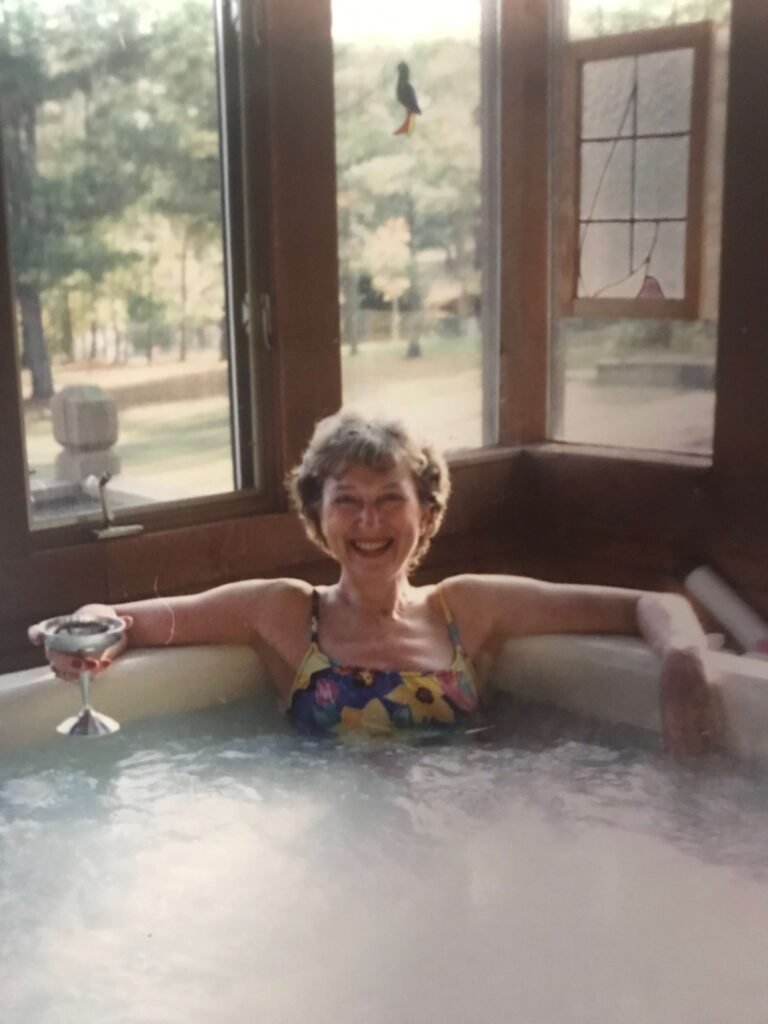
I look at that picture when I write. While my diplomas don’t hang in my home office, my mother’s hot tub picture does. I love that Jodie noticed that detail. I love that the picture brought joy to my friend. That is how we remember our mothers in the small moments that made them the happiest.
Mich: I kept meaning to get recipes. She always made this bread that both my girls adored. And I remember we had Alex make it with her a couple of times. So Anneliese and Alex had written down some of the stuff. And I remember that it was on the refrigerator at her house. It was on a post-it note. And then it disappeared. I always thought, Oh, next time. I’ll get it next time.
Liz: Well, we all know my mom couldn’t cook, so there were no recipes. Like, none.
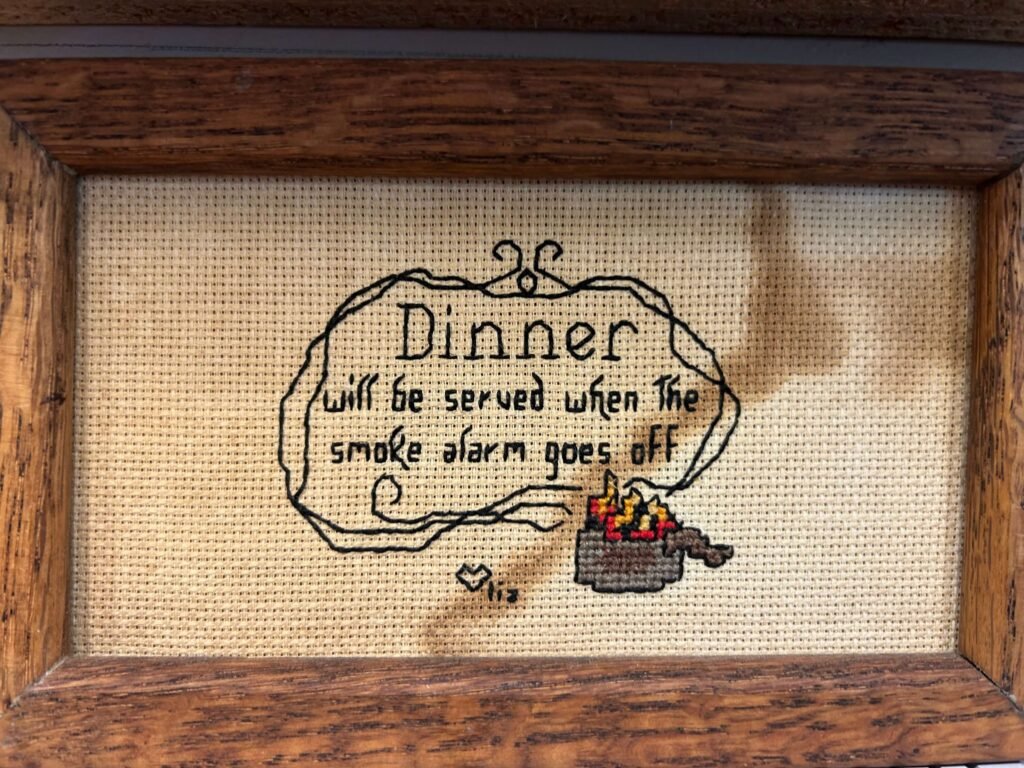
Carter would remember that my mom was famous for burning the bread. He could look out his back door and see a baking sheet with flaming triangles of pita bread. Framed in my own kitchen now is a crossstitch I gave her years ago. Dinner will be ready when the smoke alarm goes off. I will proudly tell you that I summon my own children in a similar way. They never understand why I am smiling as I run to open the back door, so the smoke can clear. It’s just a little hello from Mom. I can almost hear her laugh lovingly at me in revenge.
Jodie: There’s just so many moments now, at this age, that you just want your mom. There’s been so many times that I just want to call her.
Liz: I think there were so many moments at every age. But you could always call her.
Jodie: Right.
Mich: I had talked to her every day on the phone, every day. That was my… I drove home, picked up the phone.
Liz: I have my mom’s phone. It’s in the drawer. Sometimes I still text her. I think the last text was “Today was really shitty.” Just because that’s who I’m going to send it to.
Jodie: My mom’s phone wasn’t turned off for a long time. And so when my dad had to… If his phone was lost or he couldn’t find it, or if his was dead, he would call from my mom’s, and that would just freak me out.
Mich: Oh, boy.
Liz: When you guys were talking about messages you had from your moms my messages are, I took my meds. I regret that in the end I was managing my parents instead of being with them.
I read Being Mortal years ago. Atul Gawande taught me something profound when he wrote about asking his aging father what mattered most to him—not what the doctors recommended, but what brought him joy. His father’s answer was beautifully simple: he wanted to be able to eat chocolate ice cream and watch football on television. Not the sugar-free version of living, but the real thing. I had taken advantage of that advice and asked my dad what brought him joy. He too said eating ice cream, but he wasn’t sure that was a complete list. I wasn’t sure if he wasn’t just influenced by the example. We never revisited that conversation, but I never once denied the call from him to run to Dairy Queen late in the evening. I thought I had time to have that conversation with my mom. I would assume her answer would have been to travel, but she still loved life after that last trip that left her confused in LaGuardia airport. I wish I would have asked her, but my mother had internalized this. As a doctor, she knew the value of quality of life and counseled families masterfully at the end of life.
Liz: I feel like you guys got it right. Don’t you feel like you got a lot of time with your mom at the end? And wasn’t there a time where she went from being combative and confused to just being- funny. With really good skin.
Jodie: Right with beautiful skin. Yes. We just took on a new attitude with her, too. We just went with whatever she said, and it was a lot easier then. And like I said, we just laughed a lot.
Jodie: What I’m most happy about is everyone says I have a lot of her characteristics. I act just like her. Sometimes I look in the mirror and I’m like, “Oh, gosh, that’s my mom.” And I love it. Carter will say sometimes, That’s just like your mother. And I always go, “Thank you.” So I’m pretty happy about that.
Mich: Everything that dad and I talked about for the year afterwards, was constantly the same story about how they met, how he left Austria because he failed an exam at medical school, and they said he wouldn’t be able to take it for another year. He wasn’t sure what he could do next. And then he saw something about being a resident in England, but didn’t speak a word of English, so he took his dictionary, took the train, then took a boat to get to England, and ended up somewhere, not in the same hospital as my mom, but somewhere close. And he just goes on and on about how they met. And dad was supposed to go out with somebody else, but he chose not to. Or mom was, I can’t remember. I should know it by now. But they just happened to end up in the same place at the same time. And he said, for a year, they dated with a dictionary, an English-German dictionary. He said, the first time we spent together, we sat for five hours, and neither of us knew what either one was saying.
I love the thought of Mich’s parents falling in love without speaking a word to one another. My parents were in the same study group in medical school until my dad kicked her out because his buddy wanted in. I guess dating him was the consolation prize. The stories are legends now. No opportunity to fact check or correct the intricacies – they will just echo about in our memory. This summer, four years after her mother died, Mich’s father died.
Mich: We carried on a lot of conversations early in May. And then when I got there later, he had really lost his voice. And then he was trying to talk, and he was then starting to say things in German and English. And then he had no voice at all, but he had things he had to say. There were a couple of times he grabbed my hand, and he was earnest, very earnest in what he needed to say. I don’t know what he said, but he looked me in the eye, and he’d held my hand. That was enough.
Liz: Well, you gave him the chance to say it, even if you didn’t hear it or it makes sense to him.
Mich: And we didn’t dismiss him. We, what was that dad? It wasn’t like, oh, okay. Because I think he would have, even where he was at, I think he would have felt dismissed. And I certainly didn’t want him to feel that way.
Liz: I told you, I have a friend who’s done death and dying. And he says the three things we’re supposed to say are Thank you. I love you, and I forgive you. And that that’s all the person needs to cross. And I bet your dad needed to know on some level that you forgave him.
That friend is William Peters, the Founder and Executive Director of the Shared Crossing Project. He offers a profound framework for end-of-life conversations that transforms how we approach these final moments. Rather than focusing solely on what we’re losing, Peters suggests reorienting ourselves through three essential expressions: thank you, I love you, goodbye. “Thank you for being my mom” shifts our attention from loss to appreciation—acknowledging all the wonderful connections and experiences we’ve shared rather than dwelling on death. The gratitude statement becomes a celebration of the relationship’s gifts, honoring its fullness.
He explained to me that I might include “I forgive you as well if that’s necessary, and it most likely is in every relationship.” Forgiveness must come before we can offer an authentic “I love you.” Without addressing the times we’ve been harmed or disappointed, our expressions of love might seem incomplete. “I love you inclusive of any harm or meanness—when you weren’t the best form of yourself—I love you.”
The final goodbye offers a modicum of control in an otherwise overwhelming moment. While literature might tell us otherwise, death is not the enemy—it’s the most natural part of life. There is no battle to be fought, only a transition to be embraced with grace and presence. It seems to me there is so much wisdom in the thread of thank you, I love you, goodbye. I’ll have to ask William to walk with me.
Liz: Without her generation, it feels different. Have you experienced that yet?
Mich: Generation in the family?
Liz: My mom and her brothers have all died now.
Jodie: Well, I’m not quite there yet, but that’s my biggest fear is that I’m not going to consider Wheeling home anymore because I consider my mom and dad home, and I am just so nervous about that, of not wanting to come back to Wheeling because it’s going to be too hard for me not having them here.
Mich: Even with your siblings here?
Jodie: Yeah, because I just think that I’m just going to have that big hole.
Liz: Now I feel like I can leave. It’s very clear to me every day I stay in the three years since mom died, I used them as an excuse because it was easier to stay than leave. Now I’m using Ella in school as an excuse. I’m the adult. If I really want to pull her and move somewhere, I should do it. But I think that’s part of my problem right now is without them, I don’t feel like I have a home.
Mich: My parents had always been, Go, just go. But once there were children, I never knew my grandparents, so it was very important for me for my children to know their grandparents. And that was what kept us in Wheeling. That was why we’re still here.
Jodie: As soon as we had kids, my mom and dad came down every morning, especially my dad, every day. And then he took Collin to Easter Seals and to all his appointments so I didn’t have to take off. And then when we moved to Fairmont, they were down there every weekend or every other weekend. And then just as we moved further, they would just come down for every holiday.
Jodie: I do think that the family will stay together, and Wheeling will be the home base Yes. But I just think it’s going to be really different for me coming and calling this home like I do now.
Mich: Yeah, because your parents are home. Our parents were home.
Mich switches to the past tense. In that grammatical shift we sense the uncertainty of our footing, the uneasiness of not knowing where home is or who we are once we lose both of our parents. Am I still a daughter?
I am. And while someone else now lives in the homes my parents inhabited at the end of their lives and also in the home where I grew up, I know I still have the home from my childhood. I can find it in these lifelong friends. People who knew me when I was Lizz – with two z’s for pizzazz – and still thought I was beautiful with braces and a senseless perm. People who could only reach me on a shared land line at night or through a note passed surreptitiously under a wooden desk. People who played ping pong in my basement… who know that calling me “Elizabeth” with a slight lilt at the end still makes me think I am in trouble.
Fifteen years ago a group of these childhood friends initiated an annual reunion. There is no typical posturing one would expect at such a reunion. It is much more authentic than that. It is as if we walk over the threshold of the door and transition into our sixteen year old selves… and we are home.
In all those seasons throughout life, we lost touch. We followed other paths. I don’t know their middles, but they were there at the beginning and they are there as we experience the endings.
The beautiful, messy truth is this: there’s no universal playbook for life or its details. No matter what – the seating chart for the wedding is a pain in the ass, the coach won’t always be fair to your kid like he is to someone else’s, the packing list for the college dorm room will be too long and still incomplete, and the medication list for improved quality of life will have its contra-indicators… but somehow we all muddle through, and it works out… or it becomes essential fodder for a great story at the next reunion.
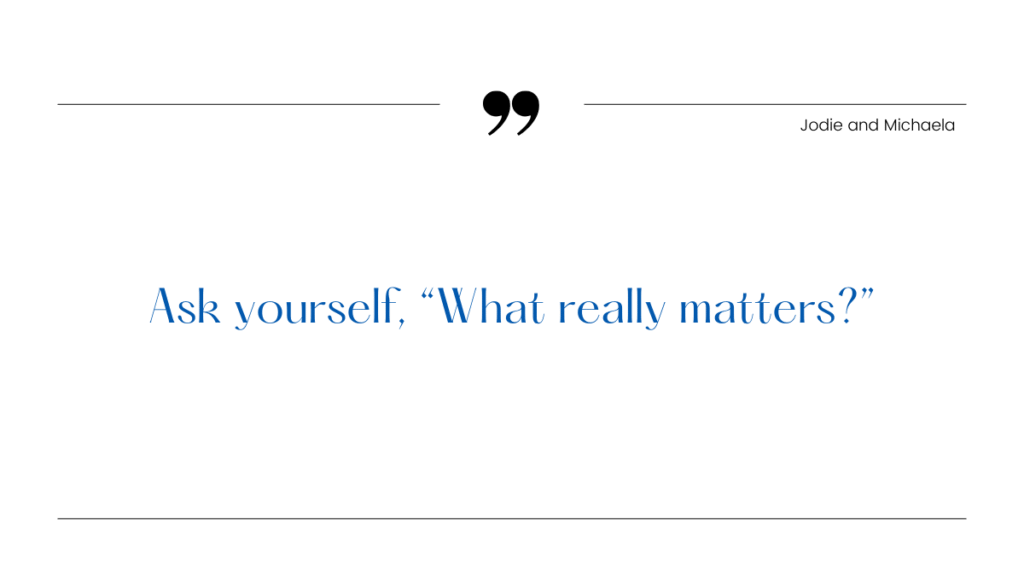
In all the seasons of our lives, but especially in this one as we move out of the caregiver role … first to our children and then to our parents if we are lucky… I hope we all live by Atul Gawande’s advice and articulate what gives us joy in this life. Ask yourself, “What really matters?” What is your version of eating ice cream during the big game?… regardless of the season.

